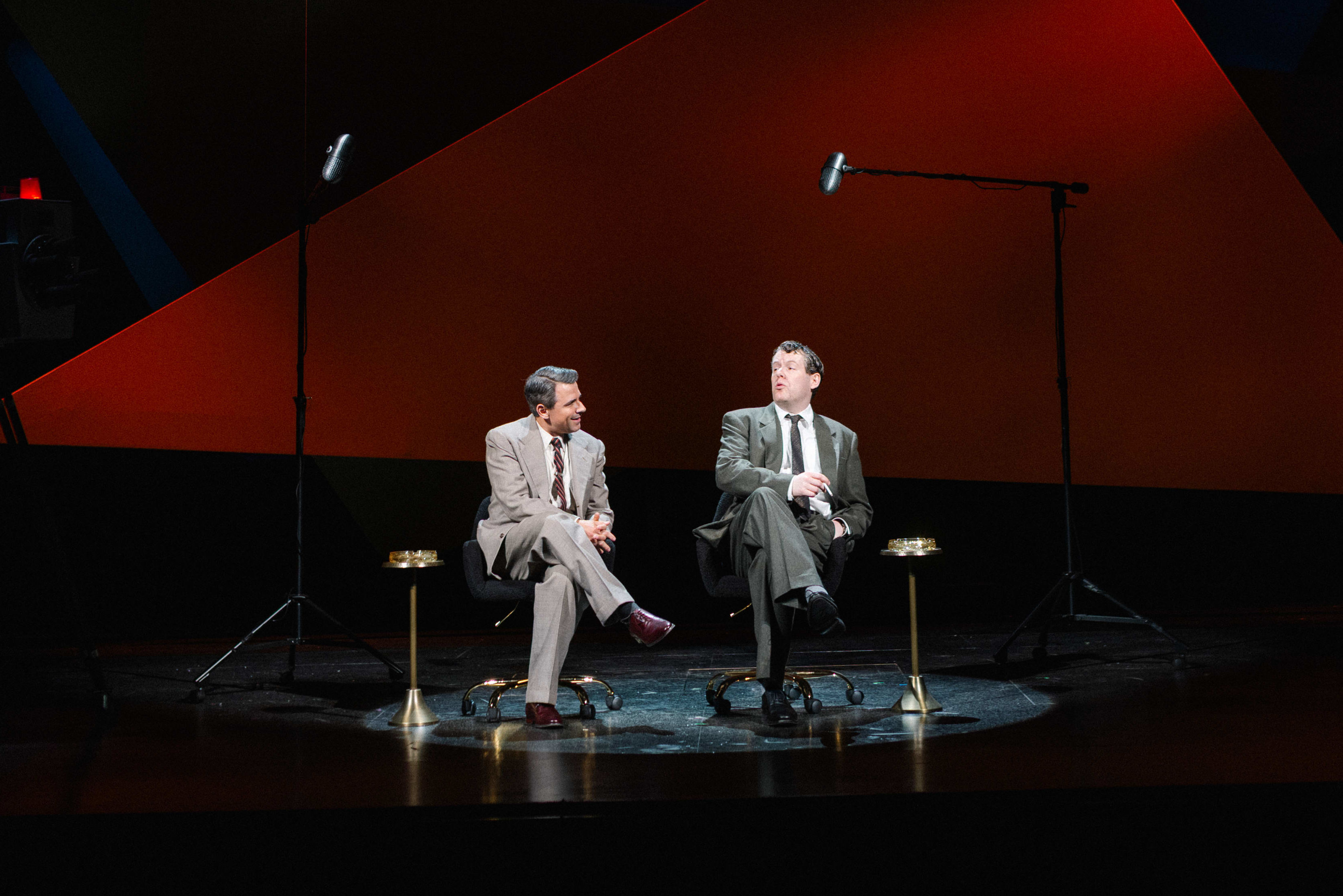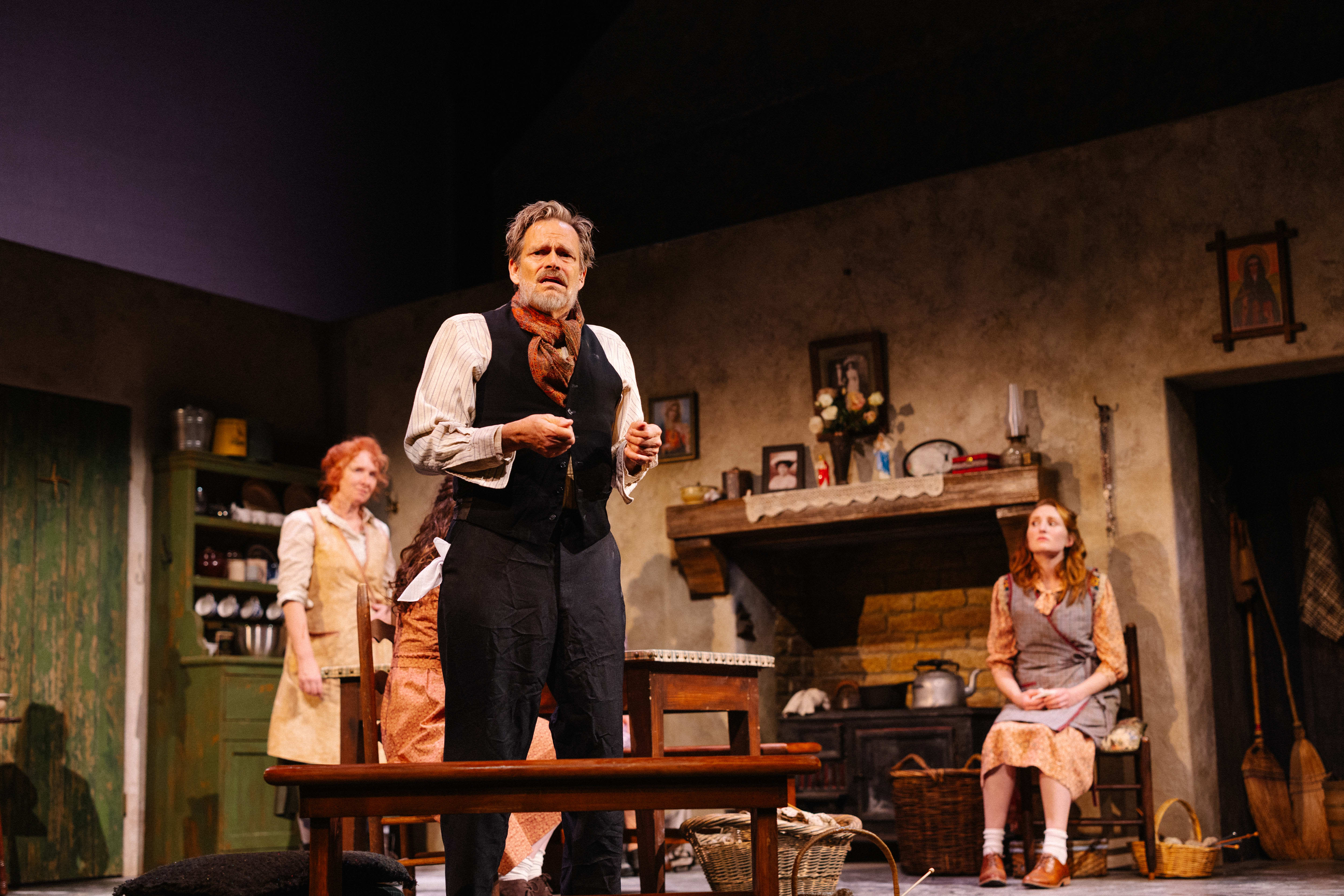Asolo Rep's Roe: A New Way to See a Longtime Battle
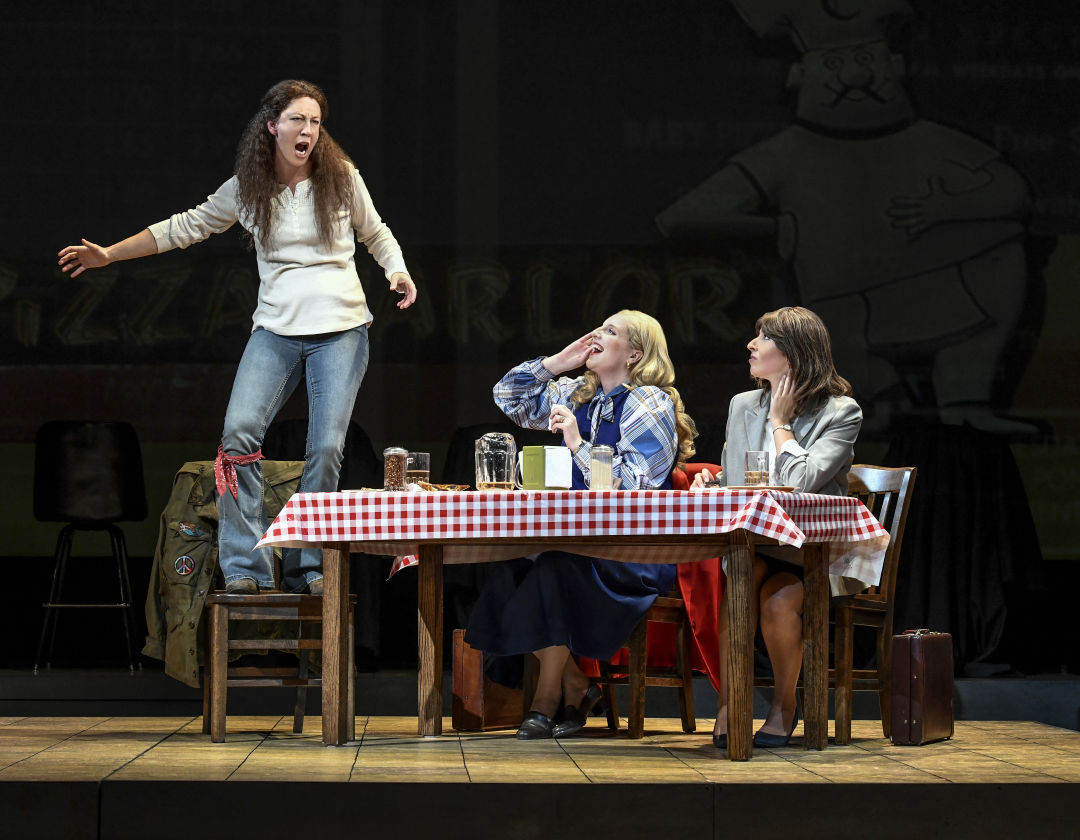
Terri Weagant, Bri Sudia and Colleen Lafeber in a scene from Roe.
Image: Cliff Roles
Is there any more emotionally charged subject than abortion? When it comes to Roe v. Wade, the landmark 1973 Supreme Court case that made abortion legal for pregnant women in their first trimester, just mention it and expect the shouting to ensue, on both sides.
That’s why Lisa Loomer’s Roe, now onstage at Asolo Rep, is a breath of fresh air on the subject. Not a polemic or a diatribe, Roe is actually—surprise!—frequently funny as well as very human, with its approach centered mostly on the two women at the heart of that case, lawyer Sarah Weddington and plaintiff Jane Roe, aka Norma McCorvey.
It’s those two women—never friends, and in some cases acting like sworn enemies—who dominate Roe over a period of decades, from the time a young, hard-living Norma (Terri Weagant) finds herself pregnant for the third time and unable to secure an abortion in Texas. Meanwhile, Sarah (Bri Sudia) is a recent graduate of law school at a time when few if any law firms would hire a woman. (As the play reminds us, her appearance during the Supreme Court debate was actually her very first contested case as an attorney.)
The two women could hardly be more different, yet there is some common ground between them—and, initially, at least—the willingness to fight the case together, along with lawyer Linda Coffee (Colleen Lafeber), whose presence in the case is often overlooked. Both Sarah and Norma wrote books about Roe v. Wade and their lives, and Loomer makes frequent and amusing references to them to demonstrate how perspectives differ, especially over a long period of time.
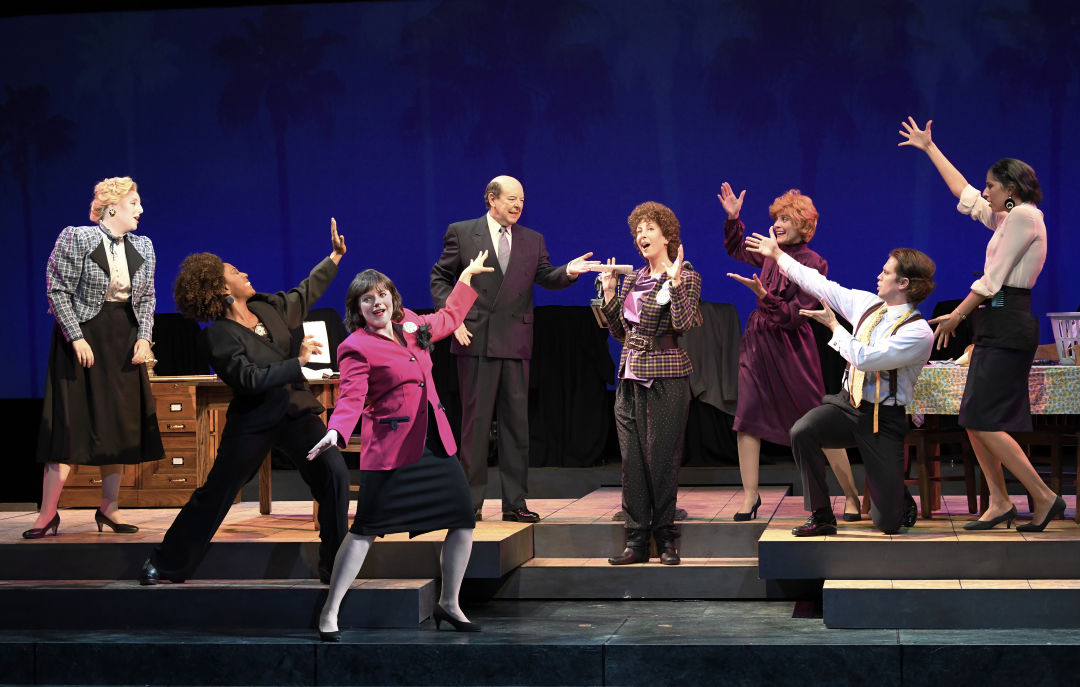
Cast members in Roe.
Image: Cliff Roles
Sure, there’s some speechifying on the part of Weddington, who in real life apparently remains as committed today to the cause of choice as she ever was. There are necessary moments in the play when court or media appearances have her delivering the kind of impassioned rhetoric you might expect.
But they are usually followed by more down-to-earth ones—sometimes even deflating ones—as Norma responds in a caustic tone, or another character speaks directly to the audience to clarify or correct a statement. Weagant and Sudia maneuver their way through their characters’ contradictions with verve and skill.
And, under the direction of Lavina Jadhwani (based on the original production by Bill Rauch), we never get trapped in any one mood for long. Roe can be truly touching, as when a young woman of the present, Roxy (Jade Turner), faces her own pregnancy dilemma. It can be bittersweet, as we see Norma’s longtime kind soul of a lover, Connie Gonzalez (Michelle Aravena in a lovely, subtle performance), get left behind in Norma’s pursuit of fame, fortune and a new faith via a slick but effective evangelist (Nate Burger). And it can be balls-out funny, as when a moment near the close of Act I plays like a musical number from Gypsy (I don’t want to spoil it by saying any more).
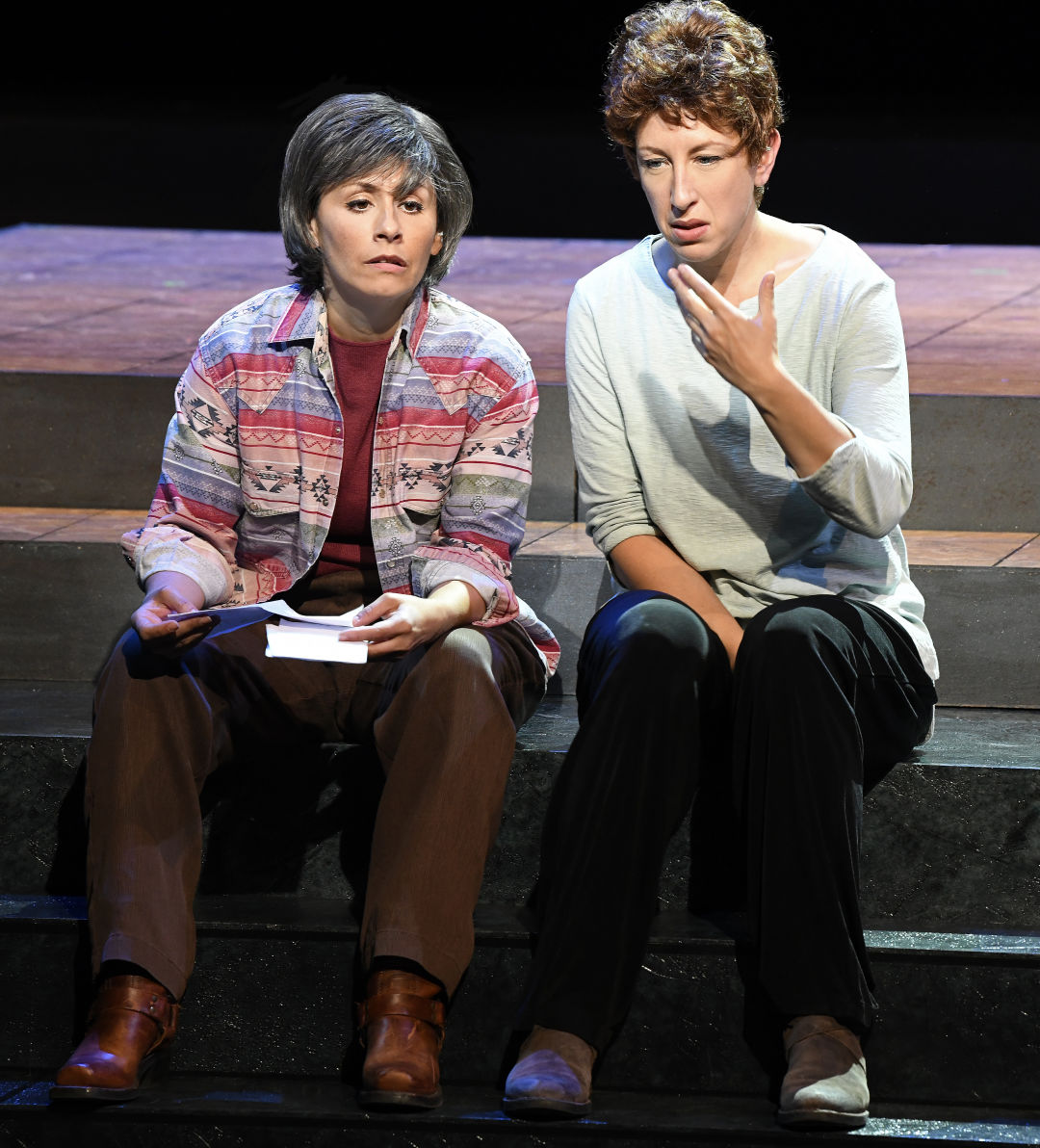
Michelle Aravena and Terri Weagant in Roe.
Image: Cliff Roles
But throughout, as we move quickly and easily from pizza parlor to church to court through Rachel Hauck’s scenic design and Wendall K. Harrington’s projections, or from era to era in Tracy Dorman’s costumes (with wigs by Michelle Hart), Roe refuses to take an easy or familiar path. There will be moments for both pro-life and pro-choice advocates to applaud. And, for certain, there will be moments for empathy, reflection and wondering about what the future will hold for this intractable issue.
Roe continues through April 15. For tickets call 351-8000 or visit asolorep.org.


